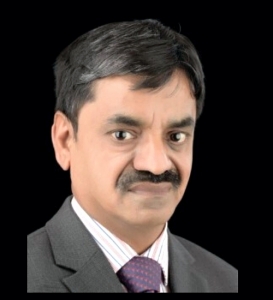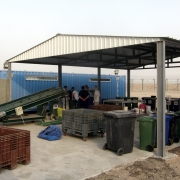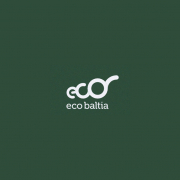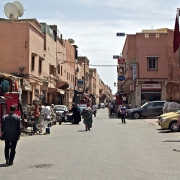BIAL Takes the Lead in Waste Management, Plastics Recycling Efforts
Lakshminarayanan S, Vice-President, Engineering & Maintenance, Bangalore International Airport Ltd discusses the importance of creating awareness regarding waste generation at the airports with Worldofchemicals. He also mentions the efforts of BIAL towards plastics recycling, an initiative to build internal roads at Bangalore Airport.
Mention the concerns and issues regarding solid waste generated at the airports. How important is solid waste management for Bangalore International Airport Limited (BIAL)?
At BIAL, we aspire to be a role model in sustainable development and, accordingly have embedded principles of sustainability into all aspects of our business. Solid waste management is one of the focus areas of sustainability.
Airports must manage all the regular concerns of waste management, including the lack of environmental awareness, complexities in influencing adaptation of waste management practices etc. In an airport ecosystem, solid waste generated is both from airport operations as well as from flights that land in the airport. Various countries and cultures have different ways of treatment and disposal, thus some issues specific to Airports include:
- International travellers:
- Lack of awareness of local regulations with reference to the use of plastic and segregation at source
- Limited/ inability to read or understand local language and directions
- Incoming aircraft
- Receiving plastic which is banned
- Segregation of waste and separation of liquids and food from plates, bottles etc on-board incoming aircraft
- Lack of identification of contaminated biowaste
As awareness of ecological and regulatory measures gather momentum, we look forward to a slew of innovation that will impact the collection and management of solid waste, including:
- Alternative sustainable solution to plastic bin liners
- Price control mechanism of alternate products to increase usage
- Mechanism to provide credit rating for using recycled products to encourage and facilitate viability of recovery
- The development of recycling units
- Promotion of R&D and innovation in recycling composite waste such as laminated glass etc.
What can be some of the efforts in making the Waste Management Expo (WME) 2020 a truly global platform for networking and information exchange on a worldwide basis?
As a corporate that is invested in managing waste effectively, we look forward to innovation that would help in segregation at source, technology that would facilitate effective monitoring and management, safe handling, transportation and processing of generated waste. BIAL would also like to hear about best practices that integrate process adaptation from the source till conversion to resource. Also, the development of affordable alternatives for plastic should be a key for a hugely populated developing country such as India.
Give us an idea regarding the plans to set up a solid waste management facility at BIAL.
At BLR Airport our aim is to use the waste generated each day as a source of bio power. Under the Waste Management Policy, we have implemented a Sewage Treatment Plant (STP) and are in the process of setting up a Solid Waste Management (SWM) plant at the Airport, with the objective to reduce landfills and increase recyclables.
Solid Waste Management
BLR Airport generates over 20 tons of waste each day. In order to reduce the carbon footprint, reduce landfills and increase recyclables from generated waste, BIAL is in the tendering process of developing its on-premise SWM facility. This plant is aimed to use latest technologies in segregation, treatment of organic waste and handling of recyclable waste.
In terms of contributing towards plastics recycling, how is BIAL incorporating the same for its road development initiatives?
Recycling of plastic is the way forward in the minimization of the use of plastic and to aspire for an environment free from plastic pollution.
BLR Airport strives to raise the bar when it comes to sustainable development. To this effect, PlasticBeku (Kannada word for: we want your plastic) is our latest campaign, launched to raise awareness on the adverse impacts of plastic waste on the environment. We will use the plastic waste collected through this drive to pave 50-km of internal roads on the Airport campus. After a successful road trial using a mix of plastic and bitumen, BIAL has decided to go ahead with building polymerized roads that have a strong binding ability and are able to withstand extreme weather conditions. Based on scientific research, it has been found that these roads are expected to last longer than asphalt roads. With a vast network of roads within the campus, BIAL, over a period of time, would need many tons of waste plastic to meet this requirement.
As an Airport, we generate a large quantum of waste each day. BIAL has, however, been ahead of the curve in managing our waste – including plastic – in a very responsible manner. Eliminating irresponsible use of plastic is just one among BIAL’s many sustainable initiatives. Building strong and durable roads with waste plastic is an easier and more ecologically efficient way to dispose plastic waste that is otherwise scattered all over.
What can be the key Government policies to address the solid waste management problem at the airports?
In our view, some of the steps that Governments could take, include:
- Enforcement of the ban on manufacture and sale of prohibited plastic
- Manufacturing of alternate sustainable products, as without affordable alternates usage cannot be implemented.
- Policy changes to implement effective solid waste management in the local community by the utilization of CSR funds.
- While punitive methods may not result in eliminating the crime, it will probably reduce the use. Further we can adapt innovative ideas like “if there is a violation by an organization, the top management would be compelled to attend good practices seminar for half day”. The same could be applicable to individual violators.
Source: Worldofchemicals News (12.12.2019)









